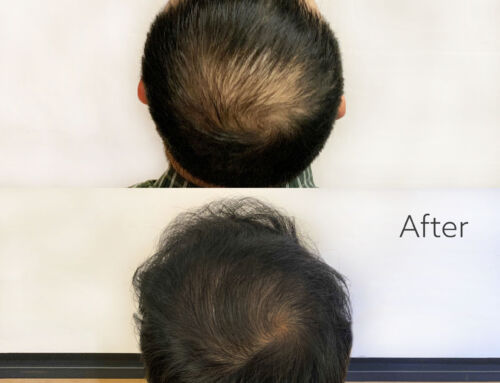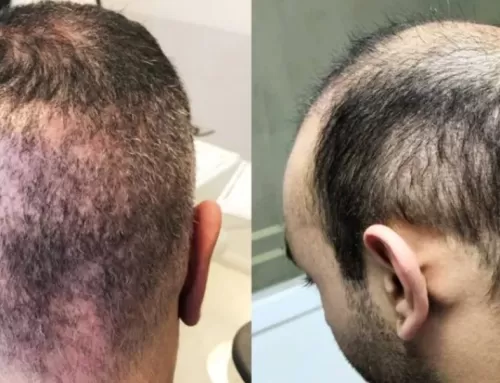While the hair loss of many women is an inherited trait, there are a number of other factors that can cause women to lose their hair, including menopause. In fact, a very large percentage of female hair loss sufferers are middle aged because of menopause.
When a woman begins menopause, she goes through a number of hormonal changes that can interrupt her hair’s natural growth process. Among these hormonal changes are the body’s loss of progesterone and estrogen, which regulate the hair growth cycle. The growth cycle of each hair shortens during menopause, leading to the thinning and balding. The body also produces more androgens such as testosterone during menopause, not only leading to thinning or balding hair, but also to hair growth on areas such as the face.
Roughly 40% of women experience hair loss or thinning during menopause, and the psychological effects of losing hair can be very damaging to any woman. Hair is a universal symbol of beauty, and the loss of it can be incredibly demoralizing. Fortunately, however, there are new treatments available for women looking to restore their hair back to its full, healthy state.
At New England Center for Hair Restoration, we offer both surgical and non-surgical treatment options for women experiencing hair loss. Hair transplants, traditionally known as a procedure for men, are becoming an increasingly popular option for women with balding or thinning hair. Schedule your consultation with us today.
Photo credit: Health-Line.com






